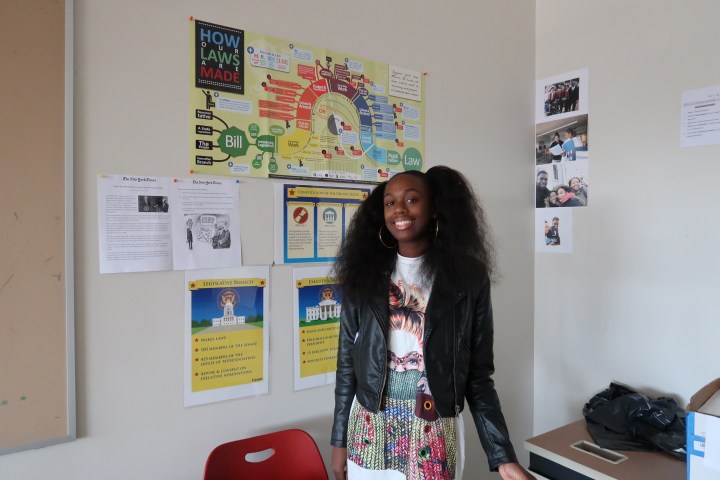
There’s a big divide in who gets to learn about how government works
There’s a big divide in who gets to learn about how government works

By the time 17-year-old Mya Kelly graduates from Washington, D.C.’s Paul Laurence Dunbar High School, she will have drafted her own laws, learned about executive powers and worked her way through the Bill of Rights.
The Bill of Rights protects you from “someone saying you can’t pray here or you can’t say that,” Kelly said. “That’s against my freedom of speech and religion. That’s against my First Amendment right.”
Funding for the types of civics lessons Kelly and other Dunbar students get is pretty limited. The federal government never spent all that much on civics education, but funding has fallen from about $40 million a year to just $4 million since the early 2000s. And because 10 states don’t require any civics classes at all, whether students wind up formally learning about government comes down to geography.
“The big problem is that there is a tremendous disparity between those who get really phenomenal civic education and those who get next to nothing or really poor civic education,” said Georgetown University political science professor Diana Owen.
Forty percent of Asian/Pacific Islander students, and nearly a third of white students were at least “proficient” in civics in the eighth grade, according to the latest federal statistics. Only 9% of black students and 12% of Hispanic students met that standard. Owen said that creates a “civic empowerment gap” between those who know how the government works and how to work the government, and those who don’t
“So those who are already privileged become even more privileged through the education process that … gives them the tools to go on and become really active and engaged citizens to advocate for themselves,” she said.
Owen said teachers in states without required civics lessons often have to rely on free resources, like the games created by the nonprofit iCivics. The group estimates it helps about 6 million students each year.
“We have a game where you’re a constitutional lawyer,” Executive Director Louise Dube said. “And then the students talk about very specific issues that are related to constitutional issues that might apply to their lives.”
Several teachers at Dunbar High School use the games as an extra tool to help students think about getting involved in the political process. Kelly, who graduates this spring, said her classes taught her how to press elected officials to get things done. And she still has a few more months to practice.
Nov. 13, 2019: This post has been updated.
There’s a lot happening in the world. Through it all, Marketplace is here for you.
You rely on Marketplace to break down the world’s events and tell you how it affects you in a fact-based, approachable way. We rely on your financial support to keep making that possible.
Your donation today powers the independent journalism that you rely on. For just $5/month, you can help sustain Marketplace so we can keep reporting on the things that matter to you.












